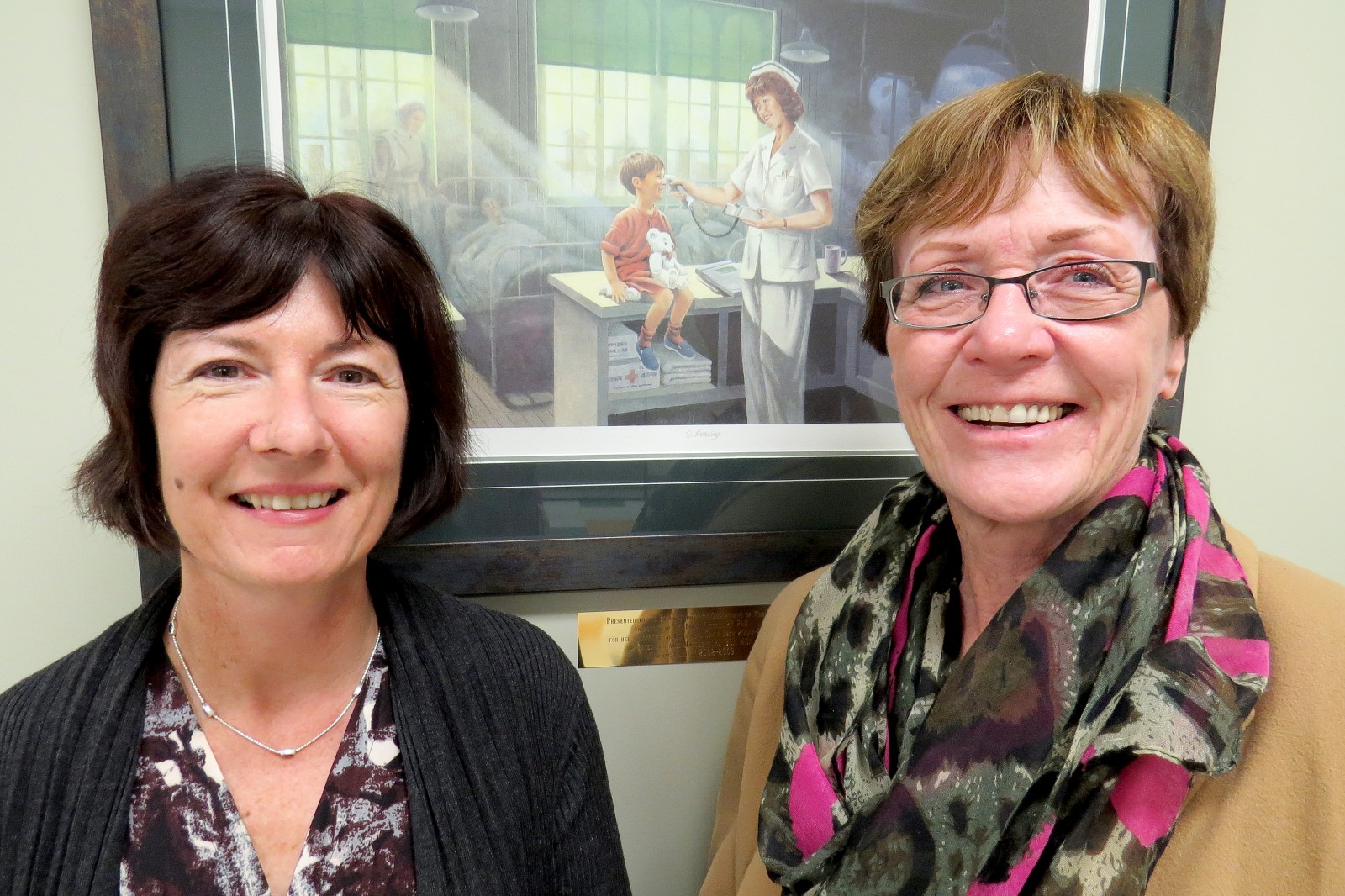 Researchers Joyce Engel, left, and Dawn Prentice, along with McMaster University undergraduate student Adriana Cappelletti (not pictured), received the Christine A. Tanner Scholarly Teaching Award for their paper “Systematic review of clinical judgment and reasoning in nursing” in the Journal of Nursing.
Researchers Joyce Engel, left, and Dawn Prentice, along with McMaster University undergraduate student Adriana Cappelletti (not pictured), received the Christine A. Tanner Scholarly Teaching Award for their paper “Systematic review of clinical judgment and reasoning in nursing” in the Journal of Nursing.The U.S.-based Journal of Nursing Education has awarded a Brock team for research on how nurses make decisions on patient procedures and care.
Researchers Joyce Engel, Dawn Prentice and McMaster University undergraduate student Adriana Cappelletti (first author) received the Christine A. Tanner Scholarly Teaching Award for their paper “Systematic review of clinical judgment and reasoning in nursing” in the Journal of Nursing, 53, 453-8.
“We were completely surprised,” says Engel. “The fact that we’re Canadians and that the award is given to an article that advances knowledge in nursing education is a huge honour.”
The paper explores factors that influence clinical decision-making resulting in “a reasoned and accurate judgment that guides nursing actions and evaluations,” and how best to teach these concepts to nursing students, says Engel.
To illustrate the process of clinical decision-making, she gives the example of a patient involuntarily admitted to hospital for mental health issues. The nurse follows a series of steps that involve gathering the patient’s history and assessing the patient’s mental state on admission.
“On the basis of the mental status examination, the history-taking from the patient, the patient’s perception of the issues, and the nurse’s assessment of the patient’s thinking and emotional state, the nurse determines that the patient is not at a high risk of suicide at this time,” says Engel.
“That information is shared with other team members, who determine certain activities, how closely that patient is monitored, a patient’s privileges and therapeutic approaches with the patient.”
The research concludes that clinical decision-making is a complex process that is sometimes challenging to teach in a classroom and clinical settings.
“For instance, how do we teach intuition?” says Engel. “How do we promote curiosity, clinical reasoning and the ability to engage the patient?” She notes that nursing education involves a lot of clinical simulation, but “there is no one best way to teach clinical reasoning and decision-making. It develops over time.
“To gain clinical reasoning, you do need classroom lectures, you need knowledge, but you also need opportunities for practice in a variety of ways and situations to be able to develop intuition and the ability to see, engage and interpret accurately within a variety of circumstances.”
Prentice says the process of writing the paper with Cappelletti was a positive experience. “It points to how exciting it is to be able to mentor and work with students. They, too, can stand amongst top scholars.”
The Christine A. Tanner Scholarly Teaching Award recognizes excellence in writing and the impact of outstanding research or other scholarly works on advancing knowledge in the field of nursing education.
The Brock research team is the first to receive the award.
Christine A. Tanner, who the award is named after, served as editor of the Journal of Nursing Education from 1991-2012 and is now editor emeritus.
“One of the most influential voices in the field, Dr. Tanner had, and continues to have, a profound impact on a generation of nurse educators through her work as a writer, teacher, researcher-scholar, and mentor and friend to faculty, students, and colleagues across the United States and around the world,” says the journal.








